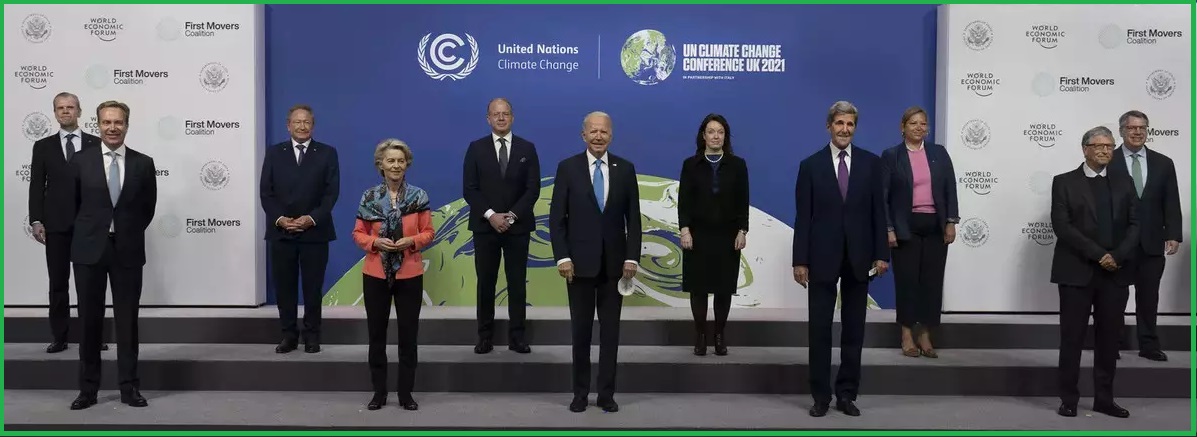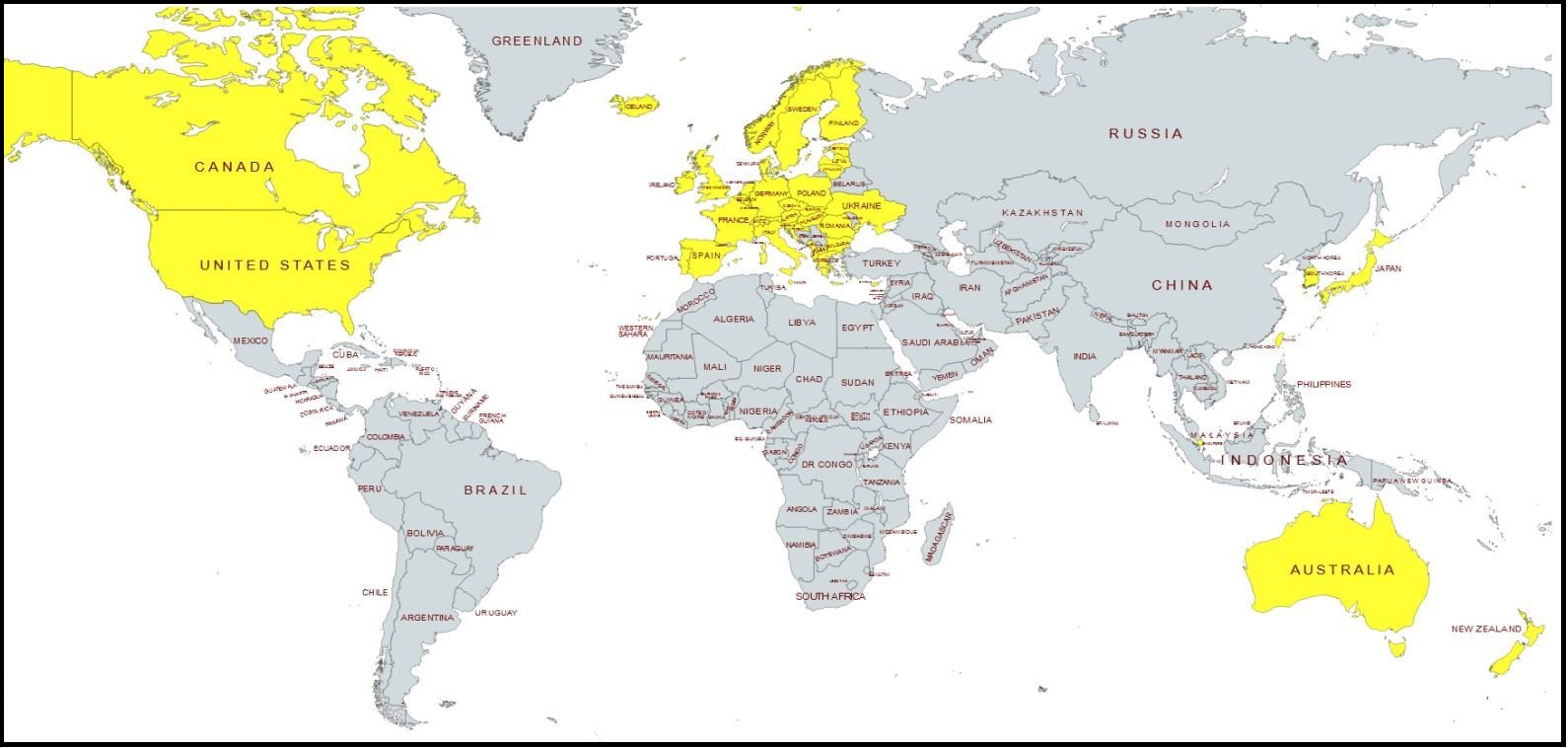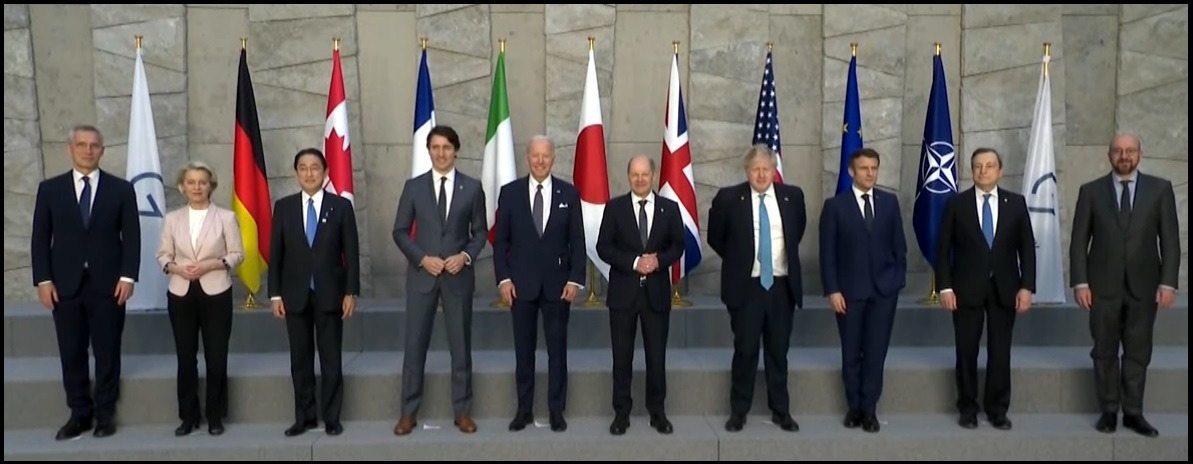by Sundance
omething odd is happening in the background of the G7 energy ministers’ announcement earlier today.
Remember that moment {HERE} when Canada’s Deputy Prime Minister Chrystia Freeland seemed really uncomfortable and weird at the presser – just 36 hours before the Trudeau administration announced they were going to drop the Emergency Act banking sanctions against the truckers? {Go Deep}

Here is an encapsulation of what’s weird, and you don’t have to be an expert in geopolitics and international trade to see it:
The G7 countries (including the U.S.) announced today they were demanding that Russia accept payment for oil and gas in euros and dollars. This is happening at the same time NATO is demanding (via sanctions) that Russia be blocked from accepting payments in euros and dollars.
Something is weird. Keep in mind, the same nations in the G7 are the same nations in NATO with the exception of Japan (G7 only).
The only way this conflict could make any sense, is if the G7 energy ministers realize that forcing Russia to trade in non-euros and non-dollars will structurally undermine the G7 unilateral hold of global finance and energy policy. In essence, the G7 see the non-sanction countries, particularly India and China, lining up to replace the petro-dollar, and that not only weakens their position financially, but it also weakens their climate change position.
Saudi Arabia is not returning phone calls from the Biden administration, and the extended OPEC-plus are not following the sanctions regime of the western NATO alliance. Which makes sense, because Opec+ includes Russia, and the geopolitical dynamic appears to have fractured around the energy sector, with the western alliance chasing renewable energy and the non-sanction countries staying on course with oil and gas.
The conflicting position toward Russia, insofar as the G7 demands they keep selling using euros/dollars while NATO demands Russia stop receiving euros/dollars, remains brutally stark. It is a conflicting interest, within the same policies, within the same geopolitical group.
Behind the G7 and NATO, we know the multinational corporations assembled in the World Economic Forum are ultimately the driver of political policy. The central bankers, finance ministers and politicians all operate under the guidelines of the International Monetary Fund (IMF), World Bank (WB) and World Trade Organization (WTO).
Together the WEF, IMF, WB, WTO, EU central banks and U.S. federal reserve, collectively represent what we call the globalists. And the globalists are pushing the climate change agenda hard {WEF LINK}.
The conflicting position, with G7 energy ministers demanding Russia accept payments in Euros/Dollars, can only be reconciled if the globalist crew is worried about the fracturing we have previously discussed. {Go Deep}
However, if the globalist team only just now realized their sanctions have created a cleaving of the world energy trade system using dollars to pay for oil/gas purchases, and by extension this weakens their objective to force everyone to accept climate change objectives, they would be fools.
Something weird is going on here. I’m not certain what it is, but I am confident something really odd is again happening in the background.
It is always important to remember the ultimate goal of the ‘climate change’ promotors is not an energy system that changes the global climate. The goal of the ‘climate change’ group is to create a carbon trading system; a new financial mechanism (a global tax program) to control human activity on a world-wide basis. This system also needs a digital identity in order to work.
As a consequence, when we look at the fracturing of the global energy marketplace, it is worth viewing the divided group through the prism of the globalist carbon trading scheme.
My hunch is the demand for Russia to accept payment in euros and dollars is directly connected to the G7 worrying about losing climate change leverage with the non-sanction countries around the issue of energy. For the globalists, it’s not just the loss of the petro-dollar at stake, it’s losing the accompanying leverage they have to enforce their climate change mission.
That’s the only thing that makes this internal conflict make sense.

